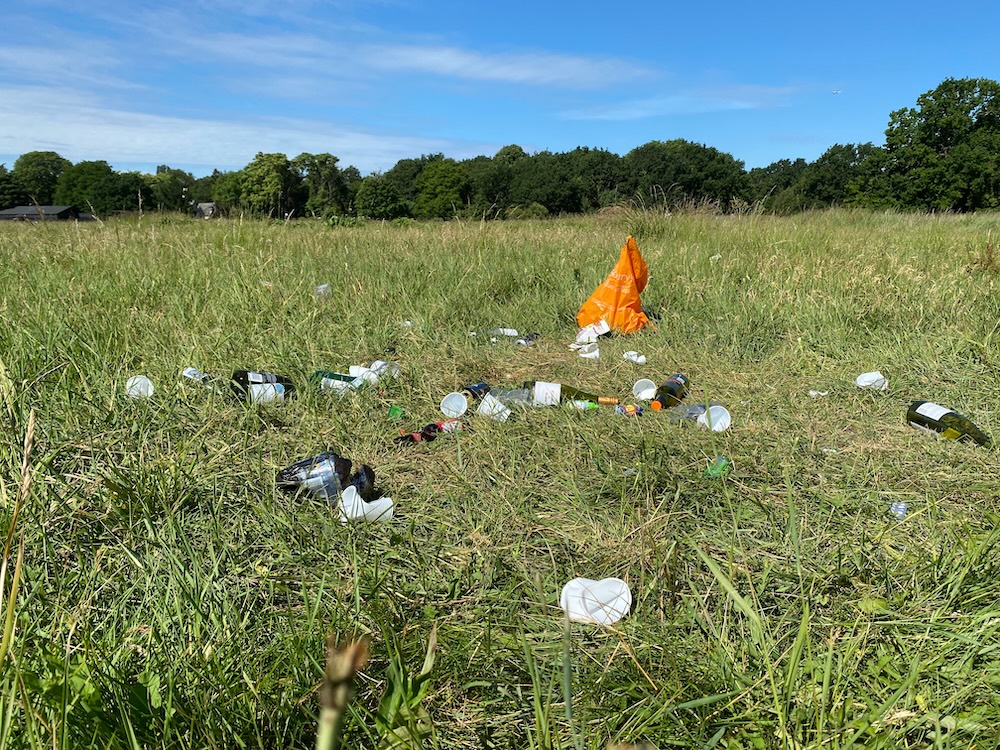Owen Derbyshire sets out why a reuse-ready Deposit Return Scheme is essential for delivering Wales’ circular economy ambitions and for meeting our duty to future generations.
It’s often said that where Wales leads, others follow; nowhere is that truer than in environmental policy.
In recent years, we’ve topped global recycling league tables, pioneered the world’s first Well-being of Future Generations Act, and introduced a plastic bag charge that has since become a global standard.
These achievements didn’t happen by chance. They happened because Wales backed bold ideas, set ambitious goals, and delivered real change when it mattered most. From universal food waste collections to kerbside recycling, we’ve shown what’s possible when ambition is matched with coordinated, cross-sectoral action.
But the very systems that made us a global leader now risk becoming a ceiling rather than a springboard.
Recycling has undoubtedly taken us far – but it won’t take us far enough. To realise the aims of Beyond Recycling, we must go further, designing systems not just to manage waste, but to eliminate it altogether.
But the very systems that made us a global leader now risk becoming a ceiling rather than a springboard.
A Deposit Return Scheme (DRS) won’t deliver that outcome on its own. But done right, it can act as a launch pad for broader systemic change – if we intentionally design for it.
How a DRS works, and why it delivers
A Deposit Return Scheme works by adding a small, refundable deposit to drinks containers like bottles and cans. Consumers pay a little more upfront and get it back when they return the empty container. It’s a simple system, and it works.
Germany’s scheme has realised return rates as high as 98%, while Estonia cut drinks container litter from 80% to under 10% in just two years.
The real opportunity, however, isn’t just cleaner streets or better recycling rates – it’s using DRS as a catalyst for deeper, systemic change. The best DRSs move beyond recycling, and encourage us to rethink how we behave, and how we value waste materials, both essential ingredients if we’re to realise a more circular society.
Some context
Last year, the Welsh Government withdrew from the proposed UK-wide DRS, which had been developed collaboratively across all four nations. The original plan for a comprehensive ‘all-in’ scheme had strong public support, but – due to pressure from industry – the UK Government later chose to scale back its ambition and dropped glass from the scheme.
Syniadau uchelgeisiol, awdurdodol a mentrus.
Ymunwch â ni i gyfrannu at wneud Cymru gwell.
The challenge for Wales is that, due to its existing record on household recycling, a watered-down scheme would lead to only minimal improvement in recycling rates at significant cost. It just doesn’t make sense, and countless global examples show that comprehensive schemes work best.
As a result, including glass remained a clear priority in Wales, with strong backing from local authorities, community groups, and the wider public. That meant the Welsh Government had a choice to make – accept a diluted version designed around England’s needs, or forge a better, more ambitious, path for Wales.
They ambition, and rightly so, both in a practical sense and by virtue of our legal context.
The Well-being of Future Generations Act places a legal obligation on public bodies to take long-term, preventative action to safeguard our environment, our economy, and our communities. That obligation is unique within the UK, and it redefines what “good policy” looks like. A limited, lowest-common-denominator DRS might tick boxes elsewhere. But for Wales, it falls short. It doesn’t reflect our responsibilities under the Well-being Act, nor does it meet the needs of environmental ambition.
Balancing practicality with purpose
The Deputy First Minister’s recent statement signals a welcome shift towards aligning timelines and ensuring interoperability between schemes in Wales and other UK nations. This pragmatic step recognises legitimate industry concerns around operational complexity and cost, reflecting the importance of collaboration and practical implementation.
Balancing pragmatism with long-term vision isn’t a compromise; it’s smart policy-making that remains true to Wales’s environmental leadership and its obligations to future generations.
However, alignment must not come at the cost of ambition. Wales’s recycling achievements and broader circular economy goals demand a comprehensive approach. Ensuring interoperability is crucial, but it’s equally essential that Wales continues to set its sights higher, building in reuse and inclusivity in the scheme’s design from the outset.
Balancing pragmatism with long-term vision isn’t a compromise; it’s smart policy-making that remains true to Wales’s environmental leadership and its obligations to future generations.
Why glass must be in scope
Keep Wales Tidy’s latest data paints a stark picture:
- 43% of streets were found to contain drinks-related litter;
- The worst-grade streets increased by 286% in one year;
- The prevalence of glass bottle litter more than doubled in four years;
- 60% of all recorded litter in 24/25 could have been addressed by a full DRS.
Glass also contributes significantly to visible and dangerous litter, particularly in our parks, streets, and coastline. It harms wildlife, deters tourism, and makes public spaces less safe for families. Leaving it out of the scheme weakens its effectiveness and delays the change that is already long overdue.
Economic and social dividends
Litter costs Wales around £70 million every year – money better spent on schools, hospitals, and transport. A comprehensive DRS will significantly reduce this cost, unlocking funds for critical public services.
But the benefits don’t stop there. By keeping valuable materials like glass and aluminium circulating, a DRS strengthens local supply chains and creates new, high-quality jobs in logistics, recycling, and remanufacturing.
Crucially, reuse-based businesses form part of the foundational economy – creating locally rooted, labour-intensive jobs that keep economic value circulating within Welsh communities, rather than leaking through global supply chains.
With clear policy signals and the right support, Wales has the opportunity to attract major investment in reuse infrastructure and material innovation – positioning itself as a leader in fast-growing markets for refillable packaging and remanufactured products.
Wales has shown courage before. The plastic bag charge was controversial, yet it became a global standard. The Well-being Act was initially dismissed as abstract, but now shapes policy across every sector.
This isn’t about being different for the sake of it – it’s about being smarter, sooner. Businesses that adapt early will become market leaders, and nations that support them will reap long-term economic rewards.
A moment for action
The coming year will be vital in setting a course for Wales’s circular economy ambitions. Beyond Recycling, Welsh Government’s flagship circular economy strategy, is due for review in 2026, and there’s no doubt the next government will be looking to make its mark come May.
A comprehensive, reuse-focused Deposit Return Scheme is more than a recycling policy. It sends a clear signal that green growth is central to Wales’s future economy and environmental strategy. How we produce, consume, and manage materials over the next ten years will define our legacy as a nation.
Wales has shown courage before. The plastic bag charge was controversial, yet it became a global standard. The Well-being Act was initially dismissed as abstract, but now shapes policy across every sector.
A Deposit Return Scheme is another practical, popular, and proven idea. It’s time to lead once again, for the sake of our economy, our environment, and future generations.
All articles published on the welsh agenda are subject to IWA’s disclaimer. If you want to support our work tackling Wales’ key challenges, consider becoming a member.





